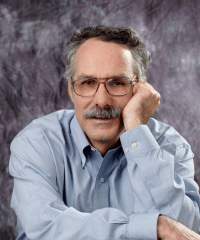Economists’ ignorance gap
May 10, 2019By Robert Samuelson
The most intriguing and indisputable thing we have learned about economists in recent decades is that they don’t know nearly as much as they thought they knew. We see evidence of this all the time. Just recently, the Bureau of Labor Statistics reported that the economy had created 263,000 payroll jobs in April. This was almost 40% more than the 190,000 that economists had previously predicted.
Something new and different seems to be happening in labor markets, as the growth in jobs has continued to be unexpectedly strong. But just what it is, how long it will last and whether it might soon be reversed are mysteries to most of us, including most economists.
It’s part of the larger problem. As an economic journalist for roughly half a century, I have slowly and somewhat reluctantly come to the conclusion that many economists (and this applies across the political spectrum) often don’t know what they’re talking about — a shortcoming that is sometimes acknowledged and sometimes isn’t.
Before I appear unbearably arrogant and superior, let me state the obvious. Most economists I’ve dealt with over the years are extremely smart and well-informed. They’re a lot smarter than me. I’ve learned much from them; it’s been one of the rewards of the job. Most are also public-spirited and generous with their time. With a few exceptions, they generally elevate the level of public discussion.
Still, the record is what it is, and it’s not pretty. Time after time, economists have failed to foresee major economic trends. In recent years, global interest rates have plunged to historically low levels (a 10-year Treasury bond fetches 2.5%). Given the importance of interest rates in economic decisions — they affect everything from housing to the stock market — this is a big deal. But most economists did not anticipate the declines and still can’t fully explain them.
Going back a bit further, economists did not predict double-digit inflation (monthly peaks of 12 percent in 1974 and 1975 and 15 percent in 1980). Its emergence frightened and demoralized millions of Americans. Indeed, policies advocated by Democratic economists in the 1960s kindled the inflation. Now, ironically, inflation has unexpectedly remained low (generally less than 2% annually), and many economists have been baffled by that too.
Productivity is another disappointment. As you probably know, productivity is just another term for efficiency. It means doing more with less. Higher productivity is the ultimate engine of higher living standards. It is crucial to economic success.
Over the past five decades, I cannot remember one instance when economists have correctly forecast a major shift in productivity growth, whether up or down. Not in the late 1960s and early 1970s when productivity growth slowed. Nor in the 1990s when productivity accelerated. And not now, when there’s been a pronounced slowdown. (From 2010 to 2017, productivity growth has averaged 0.5% annually compared with a post-World War II average of 2%.)
The Trump administration’s economists believe they will reverse these trends. Their corporate tax cuts will stimulate investment and productivity gains, the thinking goes. Maybe, but I’m skeptical. My view is that the ignorance gap is huge — that is, the separation between what economists know (and by extension the rest of us) and what we need to know.
Of course, the most conspicuous example of this ignorance gap is the recent 2008-09 financial crisis and Great Recession. “Why did nobody notice it?” Queen Elizabeth famously asked. The answer is actually fairly easy.
Economists and others are conditioned by their own experiences, and a widespread financial panic in a rich society was not among those experiences. It hadn’t happened in their lifetimes and couldn’t happen. We had solved that problem through sensible government regulation and sophisticated financial management.
So it seemed. In reality, the belief that we had outlawed a financial panic rationalized more risk-taking behavior, which ultimately led to a financial panic.
The larger cause of the ignorance gap is the very complexity and obscurity of a $20 trillion economy (the United States) or an $85 trillion economy (the world). To say that it is changing in detailed and often-unanticipated ways is simply to affirm that mere mortals, including economists, have never been very good at predicting the future.
What I think can be held against economists — not all, but many — is that they exaggerate what they know and how much they can influence the economy. The aim is usually to gain and retain political relevance and power. But the actual result is often disappointment, as government performance falls short of promises. A little more humility might be in order.
(c) 2019, The Washington Post Writers Group


















